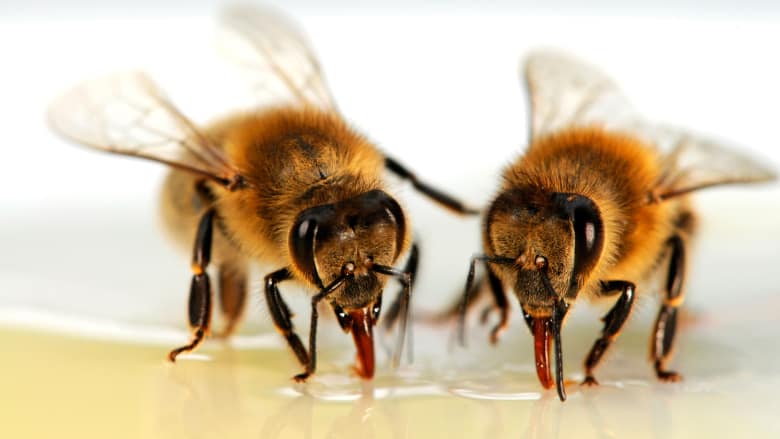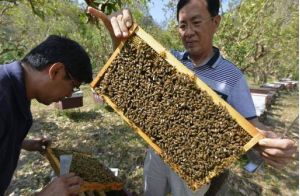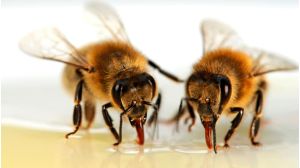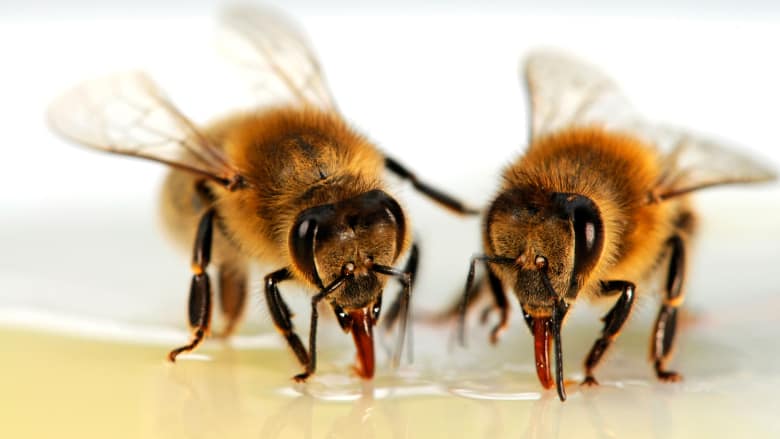Approximately one in every three mouthfuls of food you eat today was pollinated by bees.
Australia lives in a precarious beekeeping utopia because of our isolation from the rest of the world. We are the only country left that does not have the deadly varroa destructor, a tiny mite that lives off the blood of adult bees, transfers viruses, causes birth deformities and makes colonies collapse over winter.

The varroa mite weakens and kills bees.
Photo: Alamy
Recently a ship arriving in Port Melbourne from the United States was found to be carrying a hive with infected bees; luckily the captain notified authorities and Agriculture Victoria swung into impressive action to defend our shores. If bees carrying the mites escaped and came into contact with local bees, the outcome would be devastating. Over winter in Australia beekeepers average about 2 to 12 per cent hive loss; in the rest of the infected world, winter losses are between 30 and 70 per cent. Wild hives and native bees fare much worse.
While varroa destructor is believed to be the main culprit for the loss of bees, another factor influencing their health is the widespread use of neonicotinoids, water soluble nicotine based insecticides. These build up on plants and in their nectar, thereby being ingested by bees.
Melbourne beekeeping expert Ben Moore says his hives were involved in a study into how a neonicotinoid being used on grapes would affect his bees. Grapes are not bee pollinated, so the bees weren't spending a lot of time on the plants; but simply by being in the vineyard, he experienced up to 20 per cent loss in numbers.
Deadly blood-sucking bee parasite discovered at Port of Melbourne
The Eropean Union has voted to ban the use of many neonicotinoids because of their effect on bee health and they need all of their strength to fight off varroa destructor. The Australian government agency in charge of such decisions here says our bees are fine and numbers aren't falling. That is mainly due to the fact we have no varroa here … yet.
Instead they will monitor and "wait and see". Surely we should be pre-empting the arrival of this mite and ensuring our bees remain in optimal health for when this mite does reach our shores, for despite our vigilant quarantine procedures, one day, somewhere, it will slip through.
While farming in monocultures to feed a growing population who demand cheap food has led to over reliance on chemicals, we need to find less damaging alternatives to ensure our pollinators stay strong.
And finally, with hobby beekeeping having recently boomed in popularity, Moore says he is still amazed at how many people don't register their hives. This simple, free process helps create a database for government agencies to contact if a disaster does arise.
Being responsible and vigilant could be the one thing that maintains our bee paradise for as long as possible.
Nicola Philp is an Age columnist and an amateur beekeeper. SMH reference link click here





